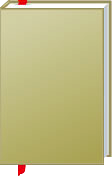

 |

|

The average rating for Brave New World Plus Frakes Writing for College History based on 2 reviews is 3 stars.
Review # 1 was written on 2016-03-30 00:00:00 Jodi Sauter Jodi SauterI have long been fascinated by the world of the Atlantic. Although I happen to live now in an area far away from that ocean in the Pacific Northwest of the United States, my own youth was spent in dealing with places and historical matters that are closely connected with the issues of trade and migration across the Atlantic Ocean and then integrated with the continental history of the United States. I have traveled to many places where the artifacts of imperial competition and the slave trade still linger, and seen quite a few places where the past remains part of the present even if political boundaries have changed. By and large, therefore, I am fond of reading books that deal critically but also thoughtfully with the multifarious strands of Atlantic history and related approaches [1]. In many ways, I suppose, I was a student or even a scholar of Atlantic history before realizing it was a particular area of emphasis, since I didn't happen to be aware of what was going on in that particular field for a long time after I had an interest in the concerns that it dealt with. This book of more than 300 pages contains a variety of essays that deal with different aspects of the question of Atlantic History and its viability as a historical approach. The book begins with an essay by the editors on the present state of Atlantic History and a discussion of the Atlantic Ocean and its contemporary meanings from 1492-1808 (1). After that the first part of the book deals with New Atlantic Worlds during the early modern period (I) with chapters on the Spanish Atlantic System (2), the Portuguese Atlantic (3), the British Atlantic (4), the French Atlantic (5), and the complicated Dutch conceptions of the Atlantic (6). The second part of the book consists of three chapters on the relationship of the Old Worlds at the Atlantic (II) with a discussion of indigenous Americans and the limits of the Atlantic World (7), Africa and the Atlantic (8), and Europe and the Atlantic (9). The third part of the book is the most critical of all in looking at competing and complementary approaches to history (III) such as continental approaches (10), hemispheric history (11), global history (12), and moving beyond Atlantic history (13). After that there is an index, and each chapter of the book consists of a lot of sources well noted in endnotes. Overall, I found this book enjoyable to read but I suspect that it will mainly be of interest to those who are interested in historiography on a large scale. The authors have a variety of perspectives and generally they all have a desire to integrate historical approaches and make sure that important questions are not being ignored by having too narrow a view of what should be studied. The authors, generally, praise the high quality of historians like Bernard Bailyn who have made Atlantic History a popular approach but are concerned that too much of a focus on the connections across the Atlantic Ocean ignores what is going on in the continental regions themselves or fails to account for the fact that migration and wide-ranging trade and imperialism are not only a facet of European empires during the early modern period but plenty of other situations as well in Africa and Eurasia. Even if I am critical of some of the comments in here, by and large the writers are serious and have a great deal of insight on the aspects of Atlantic History that they are writing about. Whether or not you will enjoy reading this will depend on the extent that you like thinking about history in terms of connections and patterns and comparison and contrast across the long duration of time and broad expanses that such history of oceanic basins naturally involves. [1] See, for example: |
Review # 2 was written on 2019-09-07 00:00:00 Willy Whyn Willy WhynThis book is for the serious student of the Atlantic world-what it is and is not as a historical field, how the early modern Atlantic was built, by whom it was built, when it existed, where the strength and the weaknesses of the field lie, and why it is valid as a field of study. Rare for a book of articles, those article are uniformly well-written and on topic whilst being the clear expression of individual scholars of great merit. Not an easy read, but an important one for historians from the upper undergraduate through the professional. |
CAN'T FIND WHAT YOU'RE LOOKING FOR? CLICK HERE!!!